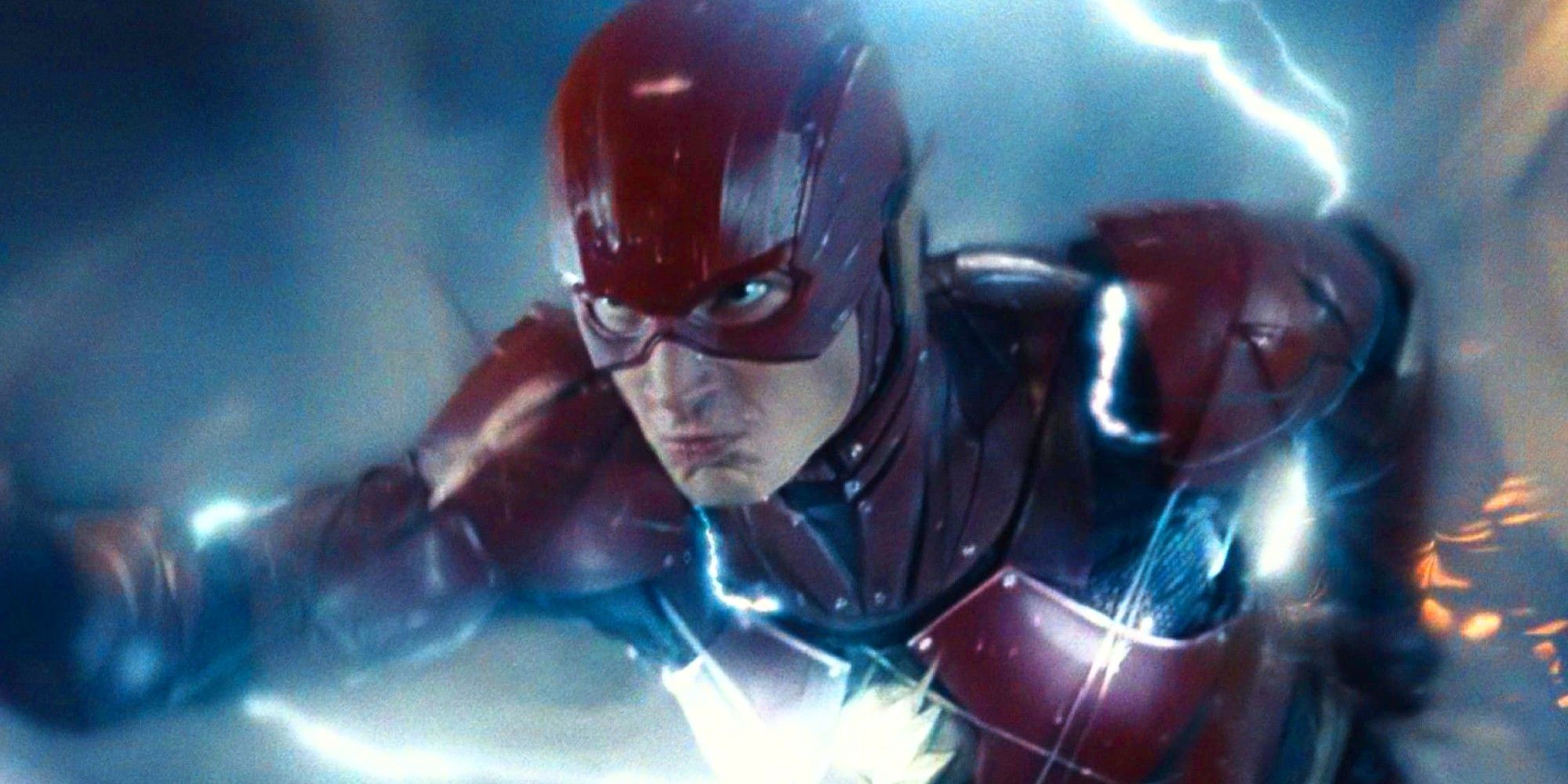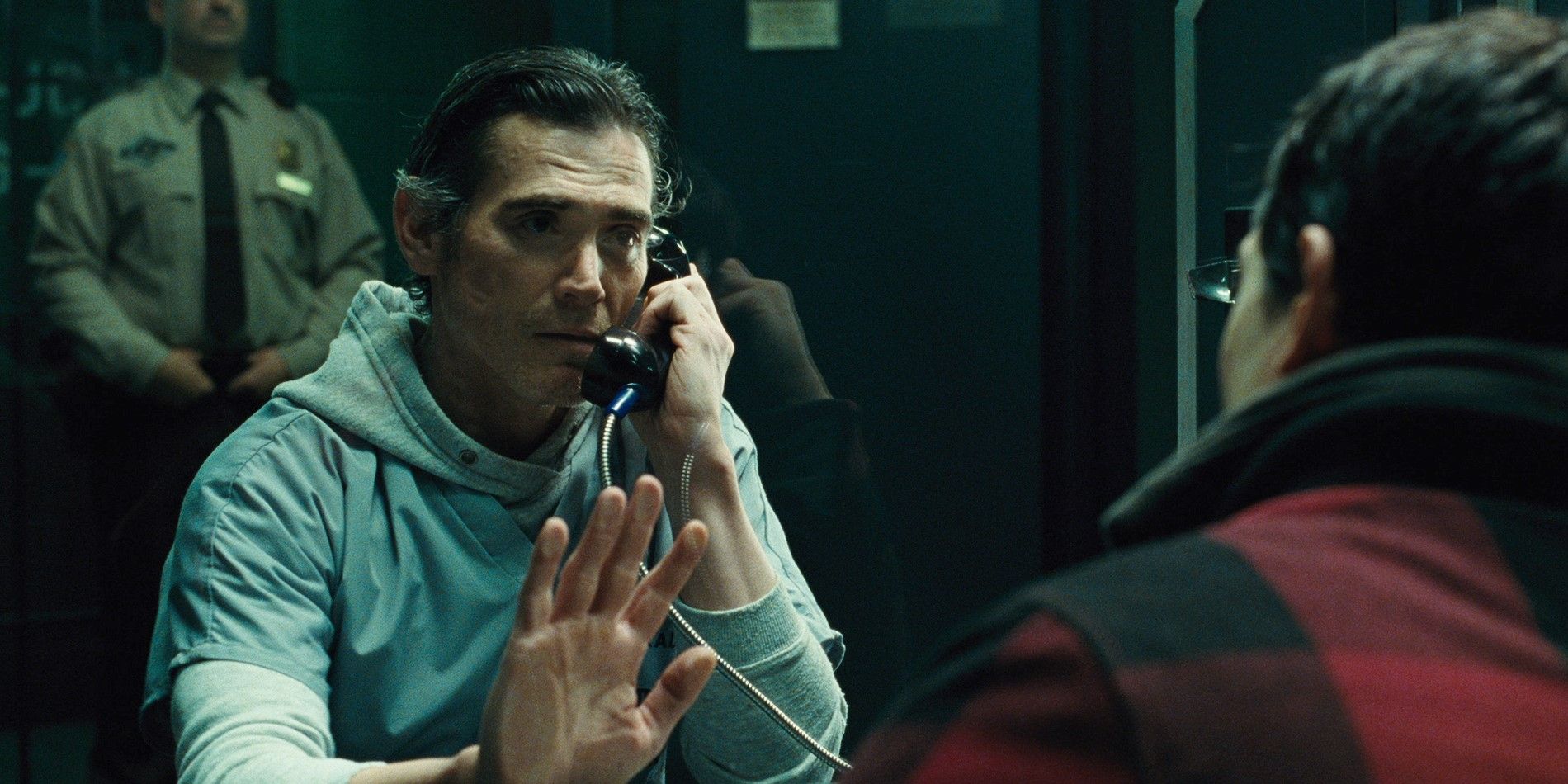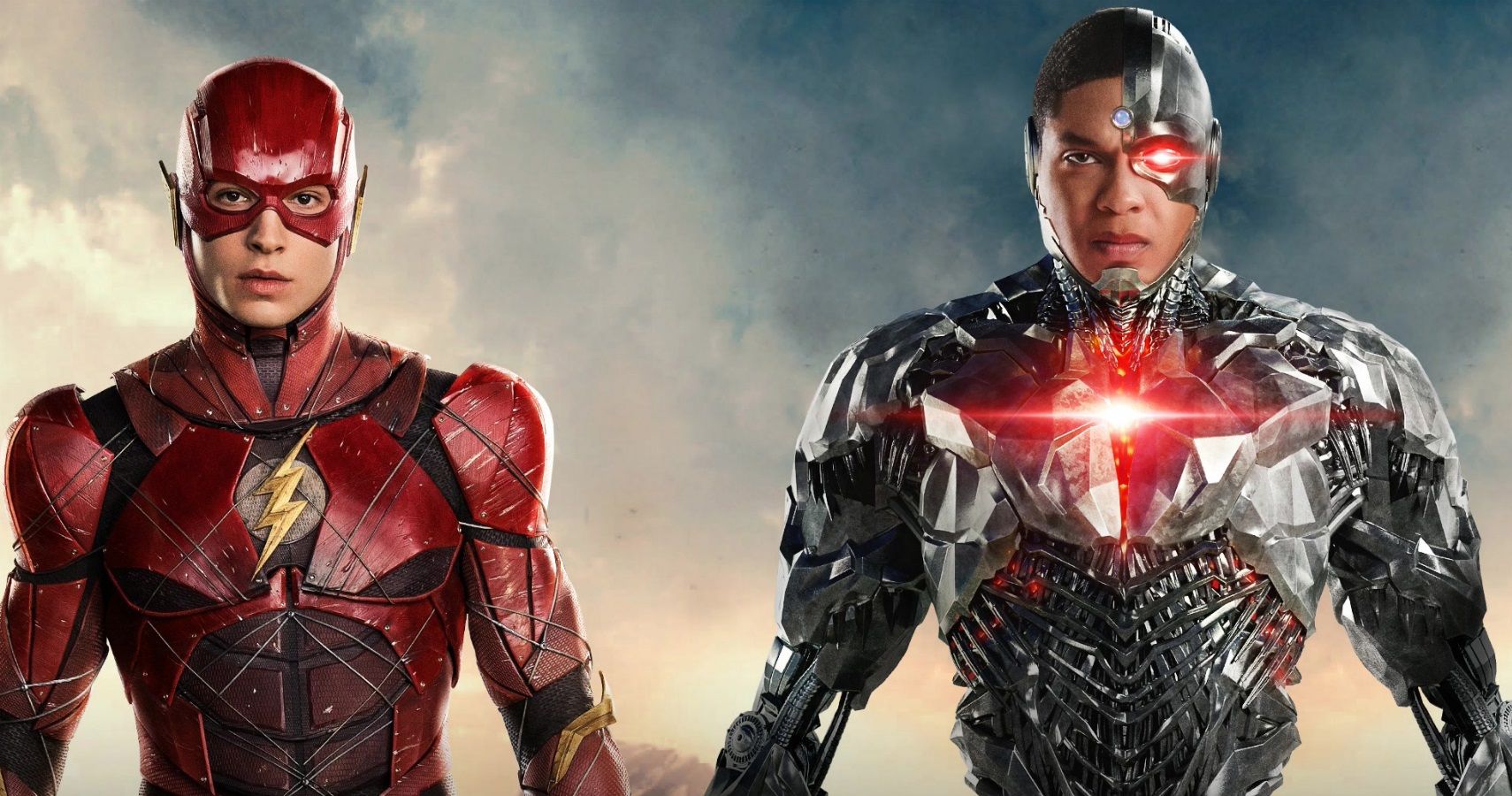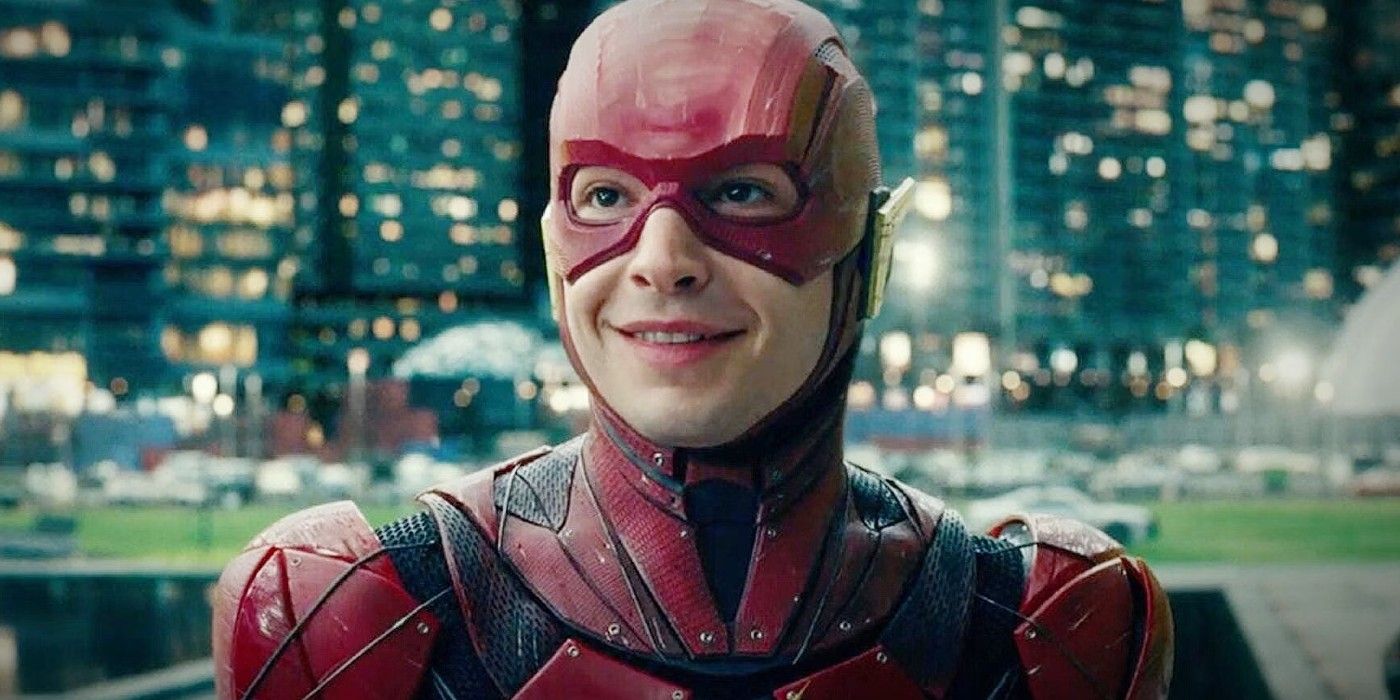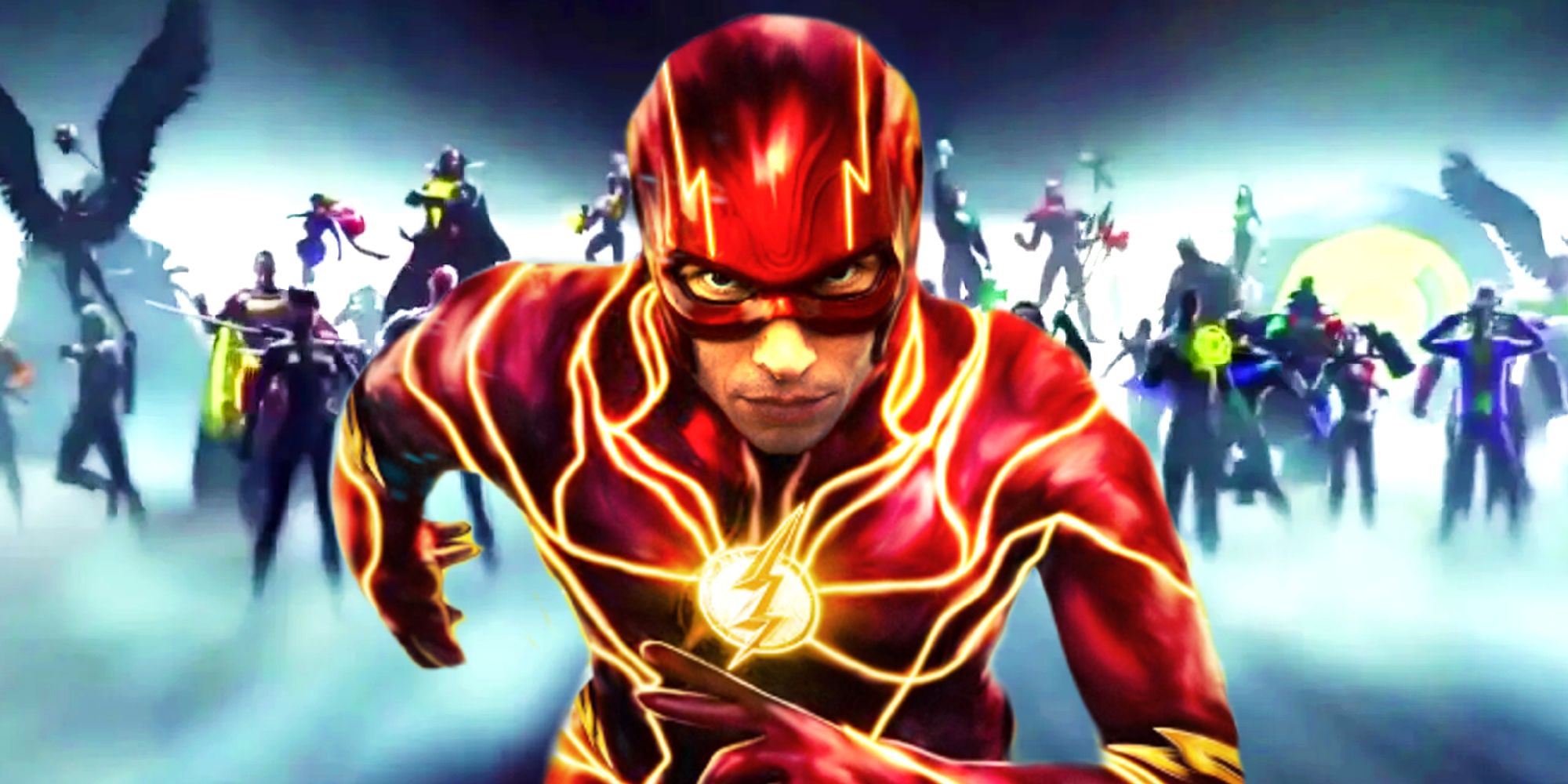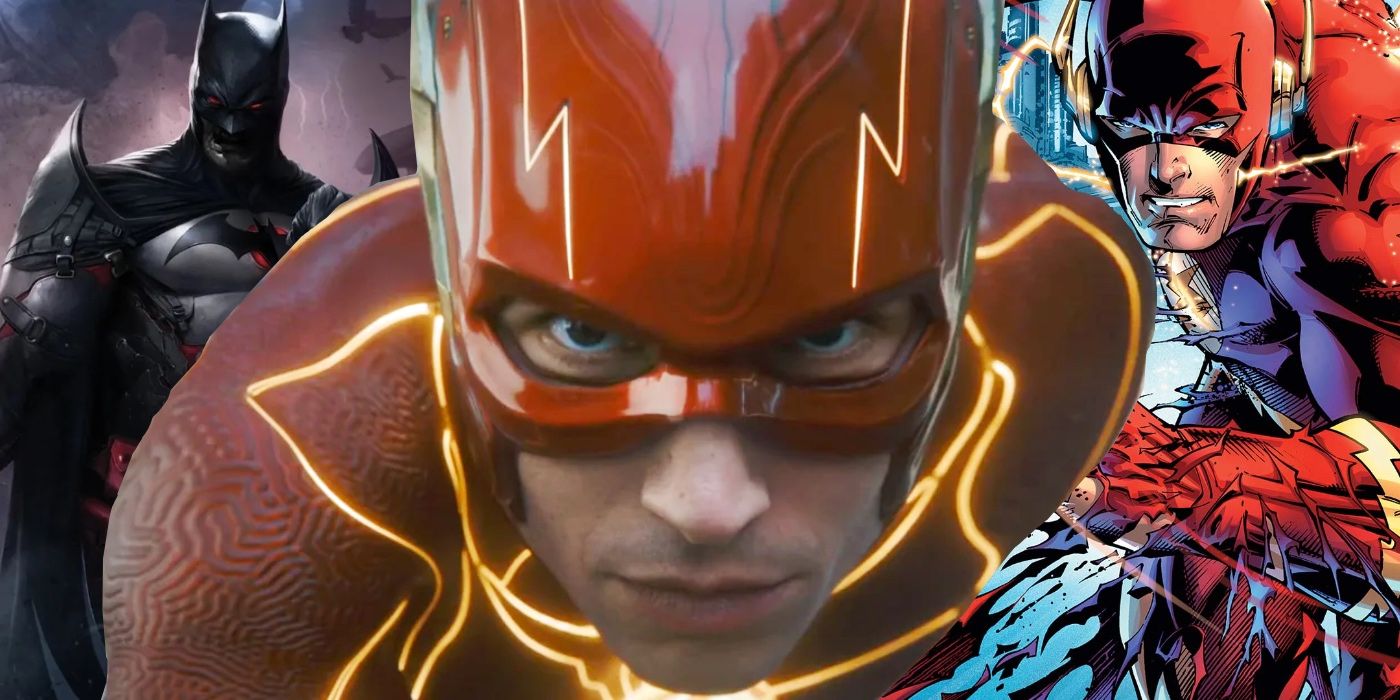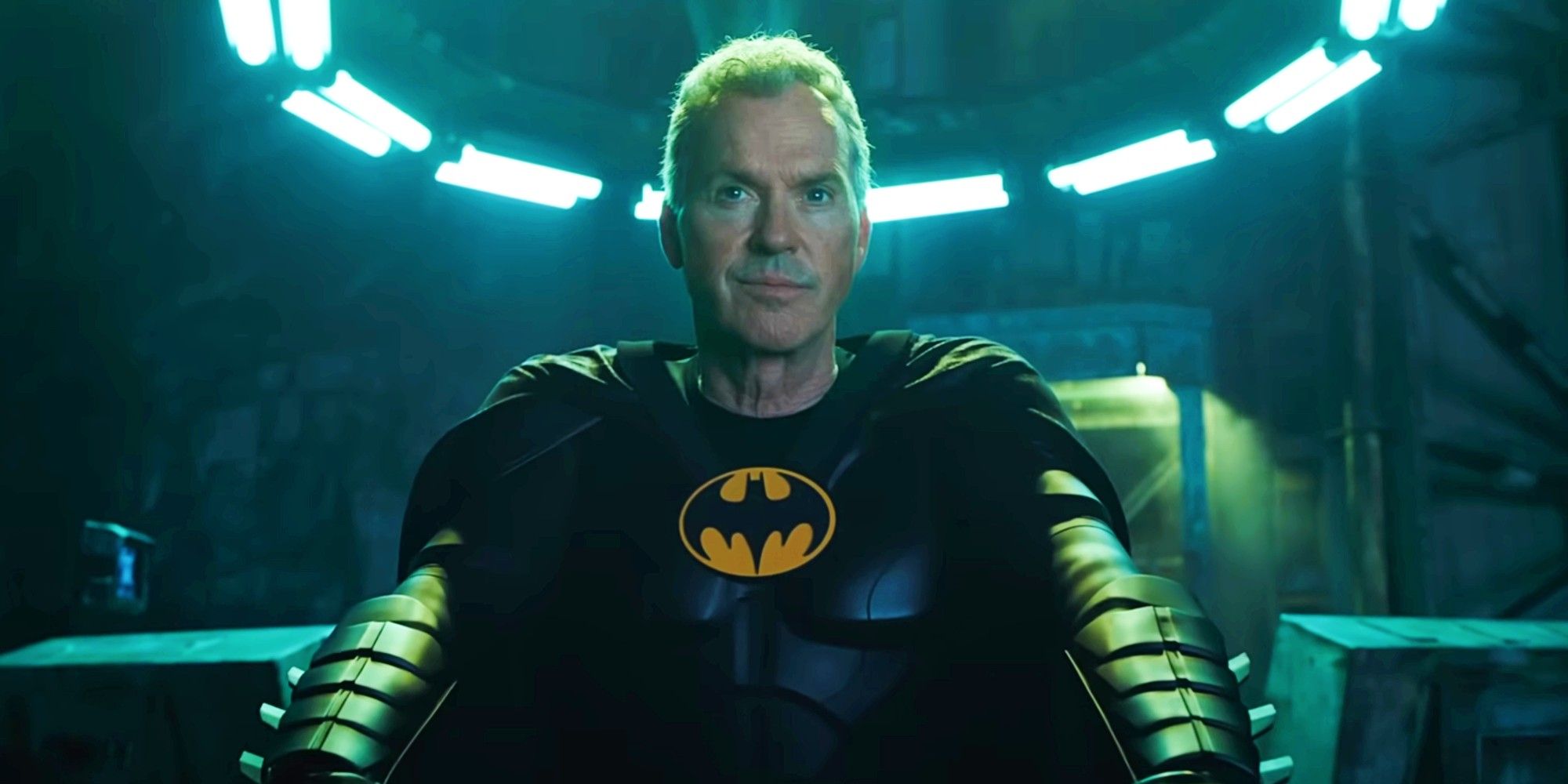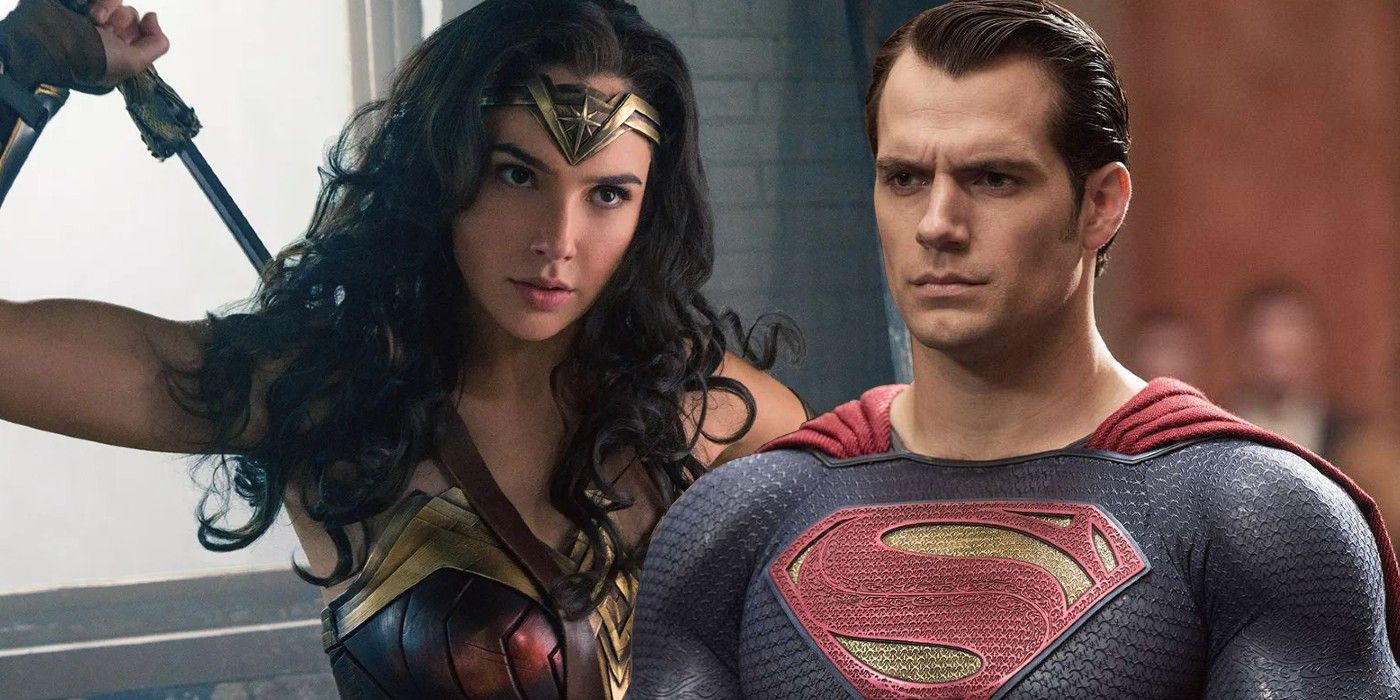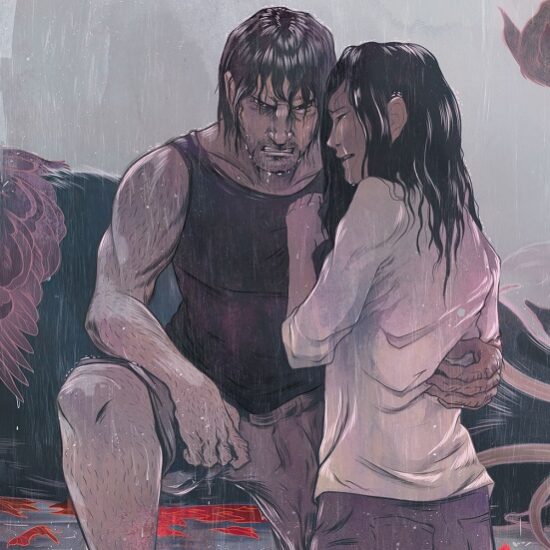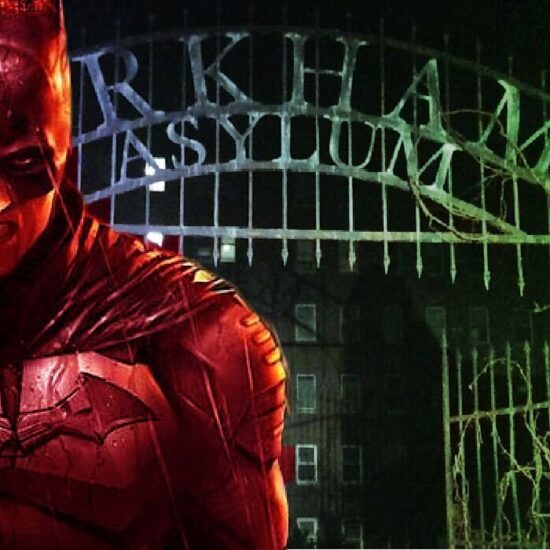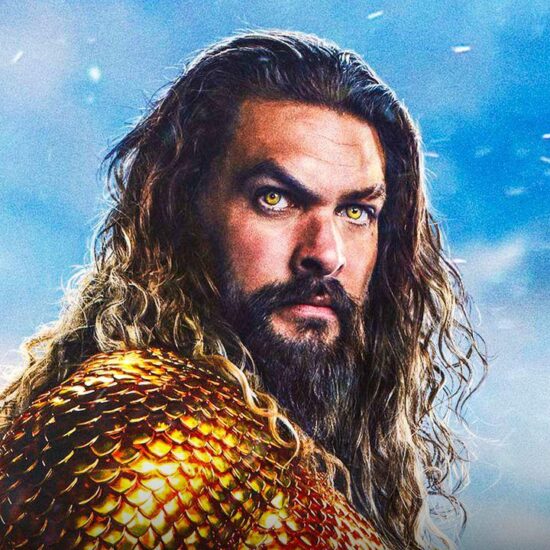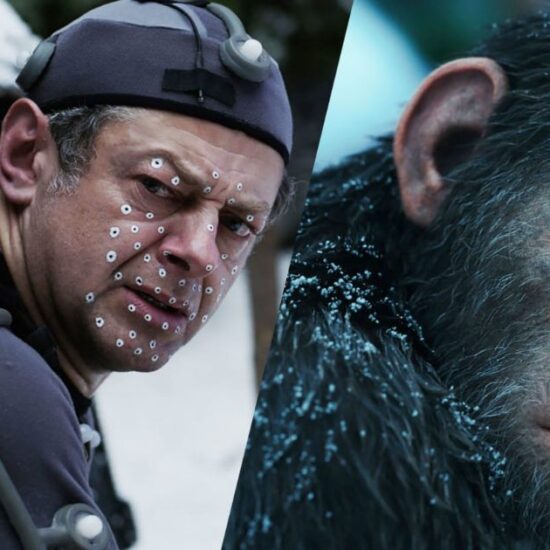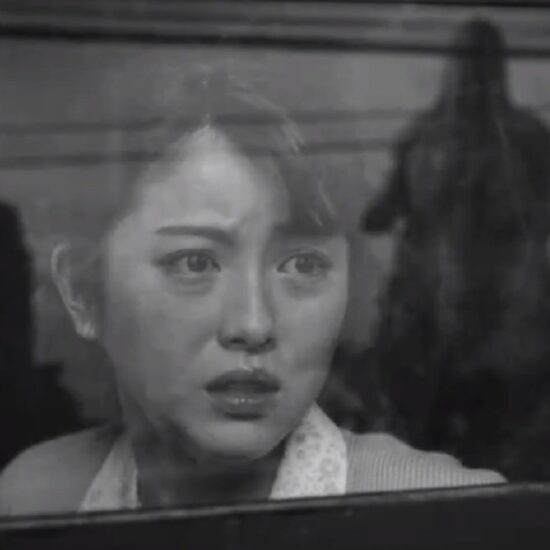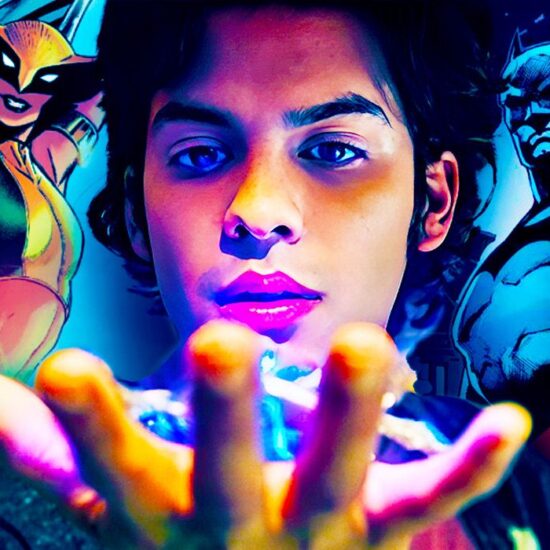The Flash movie arrives in theaters on June 16, but the version of the film coming out is far from the one originally intended to debut when the film was announced by DC in 2014. The Flash‘s cast includes the return of star Ezra Miller, who will be playing two versions of Barry Allen in the film. Miller finally gets the chance to shine as The Flash in a solo film, having previously appeared as a cameo in Batman v Superman: Dawn of Justice and as the comedic relief of 2017’s Justice League. Miller is joined by Ben Affleck and Michael Keaton’s Batmans, Sasha Calle’s Supergirl, and more.
The Flash is directed by It franchise’s Andy Muschietti, with the movie’s script being penned by Christina Hodson, who is no stranger to DC, having also been responsible for the screenplay of Birds of Prey and the canceled Batgirl movie. Before settling on its current version, The Flash went through several writers and directors over the years. The Flash was announced in 2014, just a week after the speedster’s TV series had premiered. When the movie releases in June, it will do so after almost two months of the Grant Gustin series concluding. In that time, The Flash saw many different iterations and some interesting details from those have emerged.
10 Phil Lord & Chris Miller Planned Fun Movie, Wanted To Separate It From The Flash Series
Phil Lord and Christopher Miller were asked to write a version of The Flash in 2015, with their story treatment then being said to serve as the basis for Seth Grahame-Smith’s script for the film before the writer/director departed the project over creative differences, a common thread for The Flash. Details from Lord and Miller’s early version of The Flash script were revealed by Lord in 2021. According to the writer, their version of The Flash would have been “really fun,” which certainly makes sense when going by the duo’s history, which includes the animated Spider-Verse franchise. Lord and Miller also wanted to separate The Flash from Gustin’s series.
9 Grant Morrison & Ezra Miller’s Script Was More Back To The Future Than Superhero Movie
At one point, franchise star Miller was not happy with the direction the movie was being taken in and decided to enlist the help of legendary comic book author Grant Morrison to come up with their own version of The Flash script. Morrison has since spoken about what their version of The Flash would have been about, revealing to Collider that the film was meant to be “more like Back to the Future, I would say, than a superhero movie.” The writer said that the difference between the feel of The Flash and other superhero movies would be that the DC film was to have more of a “science-fiction story.”
8 Morrison & Miller’s Script Was Said To Be Darker
Miller and Morrison’s The Flash script was said to be darker than what the movie was going to be at the hands of then-writers/directors John Francis Daley and Jonathan Goldstein. Morrison would then dispute claims that the film was dark overall, claiming it was more that it did include somber story elements based on the source material they were adapting with Miller, which was the original Flashpoint story from the comics. According to Morrison, “elements of darkness were there,” and that would have helped the film move into its planned science-fiction over superhero adventure direction.
7 Rick Famuyiwa Cast A Different Henry Allen Actor
Famuyiwa got really close to finally having The Flash start production. The director got even to the point of casting a couple of roles for the film. Before leaving the project due to creative differences, Famuyiwa was responsible for casting Kiersey Clemons as Iris West and Billy Crudup for the role of Henry Allen, Barry’s father. The director then asked for both characters to be set up via cameos in Justice League, with only Crudup’s Henry Allen making the cut. Due to the many delays of The Flash, Crudup was unavailable to return for the film, with actor Ron Livingston taking over the role.
6 Cyborg Was Reportedly Set To Appear In Famuyiwa’s The Flash
In 2016, Variety reported that Ray Fisher was set to appear alongside his Justice League co-star, Miller, in The Flash. The actor would have played Cyborg again, with the two characters having developed a playful friendship in 2017’s Justice League, which could have been explored with a bigger role for Fisher in The Flash. It is well known that Fisher’s Cyborg had his role severely reduced in the theatrical cut of Justice League, which HBO Max’s release of the Snyder Cut evidenced. However, due to Fisher’s very public falling out with DC and Warner Bros. over the Justice League reshoots under Joss Whedon, the character was cut from the film.
5 John Francis Daley and Jonathan Goldstein Had A Lighter Approach To The Story
Much like the original story treatment for The Flash by Spider-Verse writers Lord and Miller, directing duo Daley and Goldstein had a lighter approach to The Flash‘s story than some of the other iterations of the film had over the years. Daley and Goldstein’s vision for The Flash contrasted with star Miller’s, who was not fond of the direction the duo was taking the movie in. That prompted Miller to write their own version of the story with Morrison, which the studio ultimately did not greenlight. Morrison later revealed their story went away from the multiverse idea the studio wanted. By that point, Daley and Goldstein decided to move on.
4 Daley & Goldstein Planned A Smaller-Scale Story
Daley and Goldstein’s vision for The Flash shared a common aspect with the one pitched by Miller and Morrison, which was a smaller-scale story that was not necessarily based on the multiverse expectations the studio had for the film. In 2017, while no director was attached, DC revealed that The Flash would be adapting the multiversal Flashpoint story. Just a few months ago, this March, the former The Flash directors opened up about their exit and plans for the film. Daley revealed they had “pitched this idea of a ground-level superhero where it isn’t entirely end-of-the-world stakes.” Barry would be trying to understand his powers while living a dysfunctional life.
3 The Flash Movie Might Have Been Closer To The Original Flashpoint Story
Muschietti’s The Flash will feature a different version of Flashpoint. The initial reveal that The Flash would be adapting Flashpoint made it seem like the film would be using the comic book storyline in its name, with previous films having set up a path for a faithful adaptation of the story with actor Jeffrey Dean Morgan available to play Thomas Wayne as Batman. However, in 2020, Muschietti confirmed that The Flash would still do Flashpoint, albeit a different version of it. Thomas Wayne’s Batman makes way for Keaton’s return as the hero, with plenty of other changes made to what was likely initially planned to be a more faithful adaptation.
2 Andy Muschietti’s The Flash Was Rumored To Initially Set Up Michael Keaton As The DCEU’s Batman
Keaton’s return after 31 years to Batman in The Flash is a big deal; however, it could have been an even bigger event. At one point, it was reported that The Flash would set up Keaton to become the main Batman of the old DCEU, with the character playing a mentor role across different projects, such as the canceled Batgirl movie. DC never confirmed those rumors, and with James Gunn and Peter Safran rebooting the DCEU into their new DC Universe, which will feature a brand-new Batman actor in The Brave and the Bold, it appears that Keaton’s Batman return will remain a one-off.
1 The Flash Featured Gal Gadot’s Wonder Woman & Henry Cavill’s Superman
It was reported last December that The Flash cut Henry Cavill and Gal Gadot’s cameos. The actors were supposed to appear as Superman and Wonder Woman, only for DC’s decision to do away with the DCEU in favor of Gunn and Safran’s new DC Universe to put a pin on those plans. Cavill has already been revealed to be out as Superman, with Gunn writing and directing a younger take on the character for Superman: Legacy. Gadot’s Wonder Woman 3 was canceled; however, there is a chance the actress will remain in the role, which could help her The Flash cameo return to the finished film, although that is unlikely.







